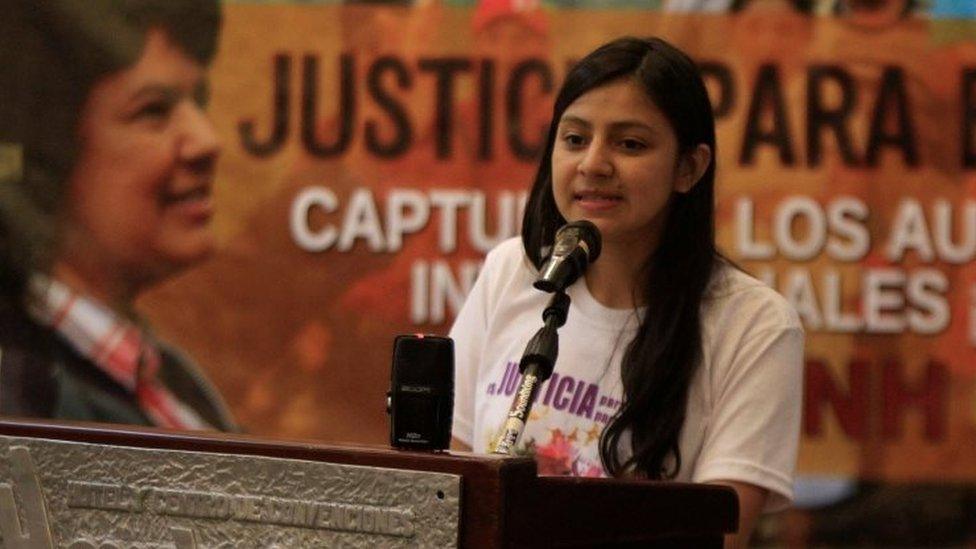Berta Caceres: Report throws light on Honduras activist murder
- Published

Laura Zuniga, the daughter of Berta Caceres has been campaigning for justice for her mother.
A report by international experts says energy company executives and state agents conspired to kill renowned Honduran activist Berta Caceres last year.
She was shot dead in March by gunmen in her home. The murder sparked international outrage.
She had opposed plans by the company, DESA, to build a dam across a river on which her indigenous community depended.
The company has denied the allegations.
Two Nobel Peace laureates, Tawakkul Karman and Shirin Ebadi visited Honduras this month and called for the investigation into her murder to be deepened.
The 92-page report compiled by a five-member panel of academics and lawyers from the US, Guatemala and Colombia was commissioned by Berta Caceres's indigenous rights organisation.
The panel made several trips to Honduras to interview more than 30 people, and studied evidence and reports from international human rights organisations.
The report said: "The existing evidence is conclusive regarding the participation of numerous state agents (police, military and officials) and senior managers and employees of DESA in the planning, execution and concealment of the murder."
It said that when the murder was planned, indigenous and tribal communities were protesting against a project to build a dam on the Gualcarque River, on land belonging to the Lenca ethnic group and considered sacred by them.
A spokesman for the country's renewable energy association said the report commissioned by Berta Caceres's family was an attempt to influence elections next month in favour of her daughter who is a candidate.
DESA has said that the report "contains false and malicious interpretations from certain conversations taken out of context".
It said the arrest of eight of its executives was "unjust".
- Published3 March 2016